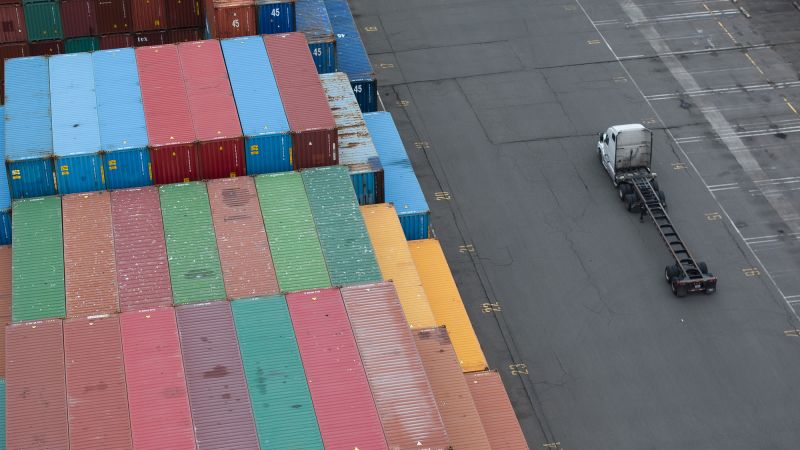
The Chilling Effect of Trade Wars: How Uncertainty Freezes Job Growth
The American economy, a juggernaut often touted for its resilience, is showing signs of strain. A recent survey reveals a deeply concerning trend: uncertainty surrounding ongoing trade disputes is significantly impacting hiring decisions across the nation. The data paints a stark picture: a staggering one in four US businesses have already dialed back their hiring plans, directly attributable to the volatility created by escalating trade tensions.
This isn’t simply about a few disgruntled CEOs; this represents a broad-based contraction in employment opportunities. The impact stretches across various sectors, impacting both large corporations and small businesses alike. The ripple effect is undeniable, affecting not only those directly employed but also the broader community dependent on the economic activity these businesses generate.
The root cause lies in the unpredictability of the current trade landscape. Businesses, by their very nature, thrive on stability and predictability. They need to plan for the future, to invest in growth, and to make informed decisions about staffing. The constant threat of tariffs, retaliatory measures, and shifting trade agreements creates a climate of uncertainty that freezes investment and hiring.
Consider the plight of a small manufacturer. They might have plans to expand their operations, hiring additional workers to meet increasing demand. But the looming threat of tariffs on imported raw materials could completely derail these plans. The added cost, coupled with the fear of further price increases, forces them to reconsider, potentially shelving expansion plans and delaying, or even canceling, those new hires.
Similarly, large corporations, facing complex global supply chains, are forced to navigate a minefield of potential trade disruptions. The cost of imported components can fluctuate dramatically, impacting profit margins and rendering long-term planning nearly impossible. This uncertainty leads to a cautious approach, prioritizing cost-cutting measures and delaying expansion plans – directly translating to fewer job openings.
Beyond the direct impact on hiring, this uncertainty has a chilling effect on investment. Businesses are hesitant to commit significant capital to expansion or new projects when the future is so cloudy. This reluctance to invest further limits job growth, creating a vicious cycle where economic stagnation breeds further uncertainty.
The long-term consequences of this trend are particularly worrying. A sustained period of reduced hiring can lead to slower economic growth, impacting overall prosperity and potentially widening the gap between the wealthy and the working class. This is not simply a matter of corporate profits; it directly affects the livelihoods of millions of Americans, impacting families, communities, and the nation’s overall economic health.
The solution isn’t simple, but it requires a move away from the unpredictable and volatile environment that currently exists. A stable and predictable trade policy is crucial for fostering business confidence and encouraging investment and job creation. Clarity and transparency, even if it means accepting some short-term pain, are far more valuable than the persistent uncertainty that is currently stifling the American economy and jeopardizing the job prospects of countless individuals. The time for decisive action to restore confidence and stability is now.



Leave a Reply